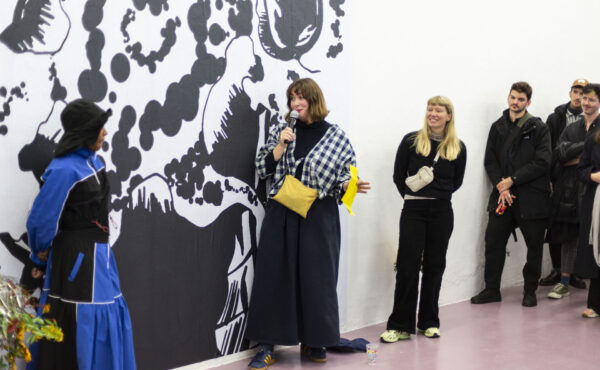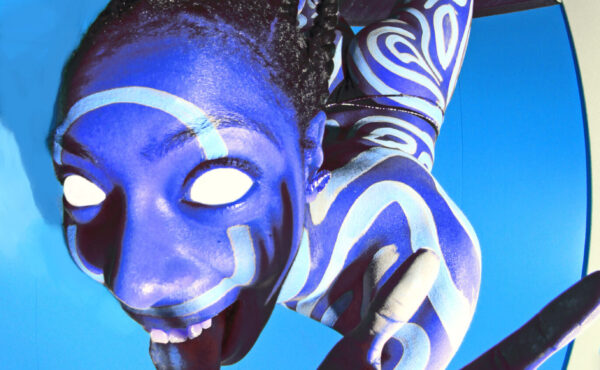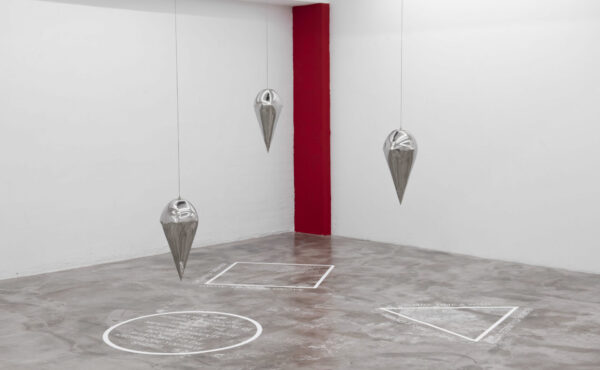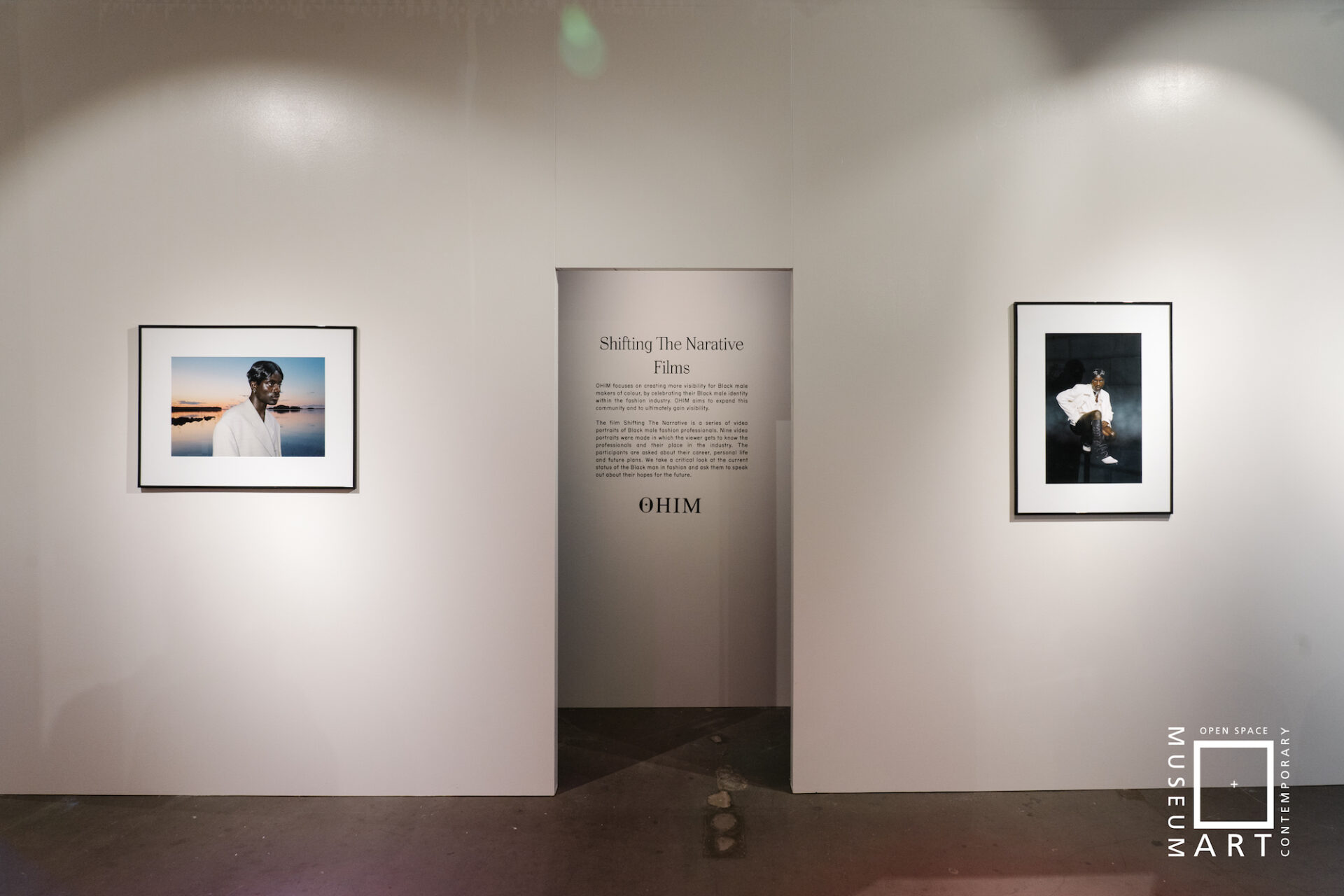
Exhibition overview ‘Shifting The Narrative’, 2023, at OSCAM, photo: Almicheal Fraay
‘The work is ours together, because we give meaning to it together’ — in conversation with Marian Duff
Grind culture, Black joy, and transparent museums: Marian Duff, founding director and head curator of the Open Space Contemporary Art Museum, tells Olivia Brown about OSCAM’s drive, ambitions and plans for the future. ‘We’ve shown ourselves enough. So now we’re going back to our core business. And what is important for us is calm.’
Even through Zoom, the enthusiasm and razor-sharpness of Marian Duff is unmistakable. Time is tight if you are responsible for an entire museum and its staff, though it seems to be a job Duff takes on with ease enough that she is still thoughtful. A veteran of the fashion, museum, and writing worlds, her previous experience guides her work with OSCAM, while the difficulties she encountered in these fields helps drive her inclusive philosophy there. During our conversation, Duff’s excitement and pride for the copious amount of work she and her team have put into OSCAM is apparent. I find myself embarrassingly enthusiastic about the initiatives she describes, which are about centering new narratives and presenting an alternative vision for what a museum can be—a decidedly anti-racist space centers the community, while empowering its young workers, and presenting otherwise ignored perspectives.
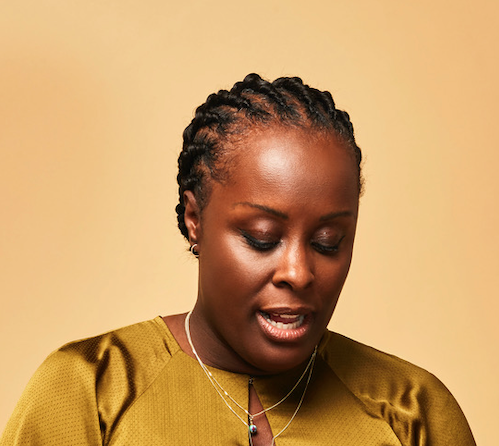
Portrait of Marian Duff, by Jonathan Hoost
For one, Duff wants to see Black joy centered in the museum. She reasons, ‘You don’t often see people of color presented in other museums who are joyful, or happy, or expressing themselves in a positive way. They are often naked or chained.’ A recent exhibition by OSCAM, curated by Duff and produced by Georbella Fini: Digital Expressions: Black Joy, presented this exact narrative — that despite the massive hardships experienced collectively by Black folks, there is always laughter that goes hand-in-hand with suffering. For Duff, it is important to show that, as well. Her motivation comes from a place close to her heart: her son. When Duff mentions him, she begins to beam. She tells me, ‘I’ve got a son who’s twelve, a Black boy, and I want him to feel comfortable when he goes to a museum. That he feels this is a space where he also belongs and where his stories belong, and where he can go with his friends and family.’ These themes extend into another exhibition, freshly opened several days before our conversation. It is a collaboration between the fashion platform, OHIM, and OSCAM, titled Shifting the Narrative. The press release states that the show ‘will present new and exciting work, designed to contribute to the narrative of Black men in fashion.’ Where Black men are normally hidden, here they become visible. Viewers can either see themselves beautifully represented, or be presented with a representation sorely missed.
‘In other museums, you don’t often see people of color presented who are joyful, or happy, or expressing themselves in a positive way’
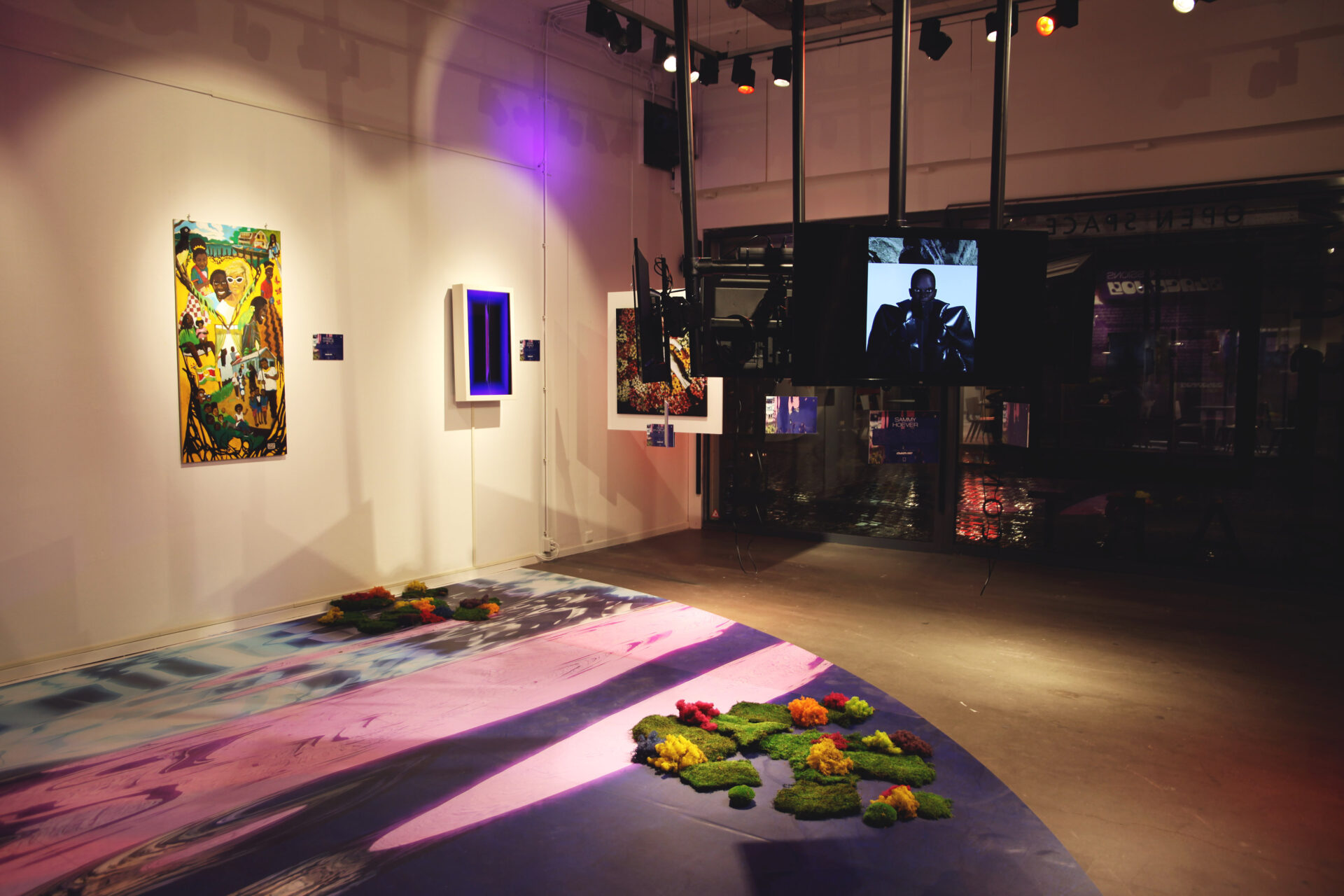
Exhibition opening 'Digital Expressions: Black Joy', at OSCAM, 2023, photo: Cheyenne Weerden
What strikes me about OSCAM and the director behind it is that while other institutions are bogged down with challenges to archaic inner workings that are now unpopular with a shifting culture—such as the British Museum famously and embarrassingly refusing to return stolen artworks—Duff and the philosophy guiding OSCAM feels refreshingly on-time. Finally, a contemporary art museum reflecting contemporary ideals. Out of theory, and into practice, Duff describes initiatives that are straight from a utopian ideal for how an institution should be run. Duff describes that OSCAM is ‘an open space, but also trying to be a safe space.’ I imagine saying this so openly would receive a lot of resistance from a more traditional team, or that it’s easier to simply declare that you would like your work environment to be safe for everyone. Duff cuts clear across these doubts by explaining that she attempts to empower the workers at OSCAM in conversations about two things: money and contributions.
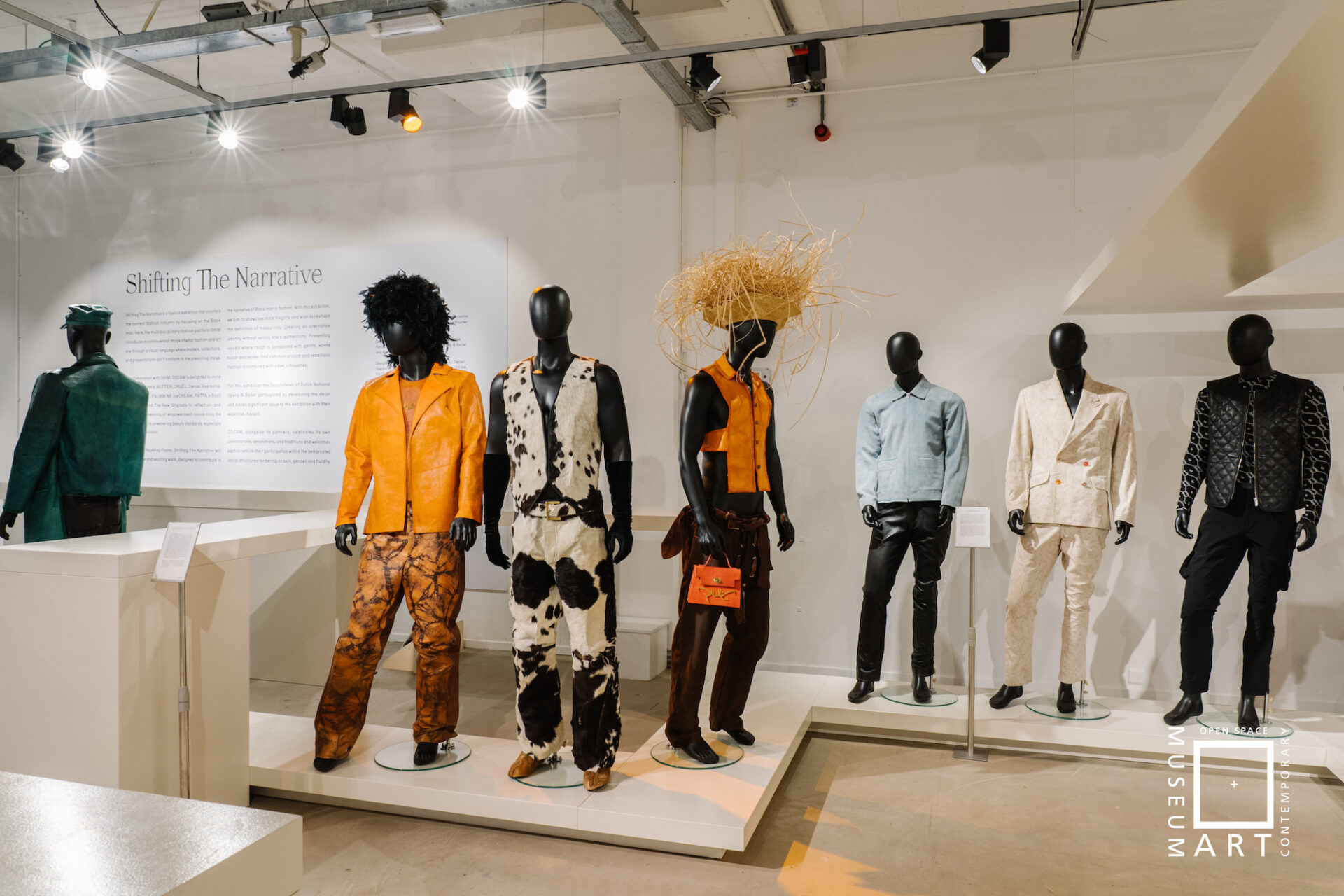
Exhibition overview 'Shifting The Narrative', 2023, at OSCAM, photo: Almicheal Fraay
Mariam explains that the workers at the museum are split into two groups: the Core OSCAM team and the YoungOSCAM team. The Core OSCAM are mostly young professionals with a lot of experience and the Young OSCAM team is a variety of self-taught creatives to students at art institutions like HKU, UvA or AMFI. Duff says where they all connect is a passion for showing different narratives. Discussing the employees in the Young OSCAM group, Duff elaborates: ‘A safe space is not only about that you feel safe as a colleague, designer, or a maker, but also that you know the value of your expertise and the value of you as a human being. I really want them to know what they are worth.’ Duff emphasizes that she wants her team to feel heard and secure, a feeling that was not automatically afforded to her in the past. The YoungOSCAM group are included in financial transparency and meetings on the running of the museum. Together with the CoreOSCAM group, younger members participate in developing Speak Sessions, online radioshow, workshops, classes, lectures—every event that brings OSCAM to life—within the framework of their personal interests, directly impacting their future work experience. You can’t pull the wool over someone’s eyes when they’re armed with the knowledge of what fair pay looks like, what it feels like to be included in decisions in the institution. One more worker in the cultural sector is transformed into an agent unafraid to demand fairness.
What strikes me about OSCAM and the director behind it is that while other institutions are bogged down with challenges to archaic inner workings that are now unpopular with a shifting culture, Duff and the philosophy guiding OSCAM feels refreshingly on-time
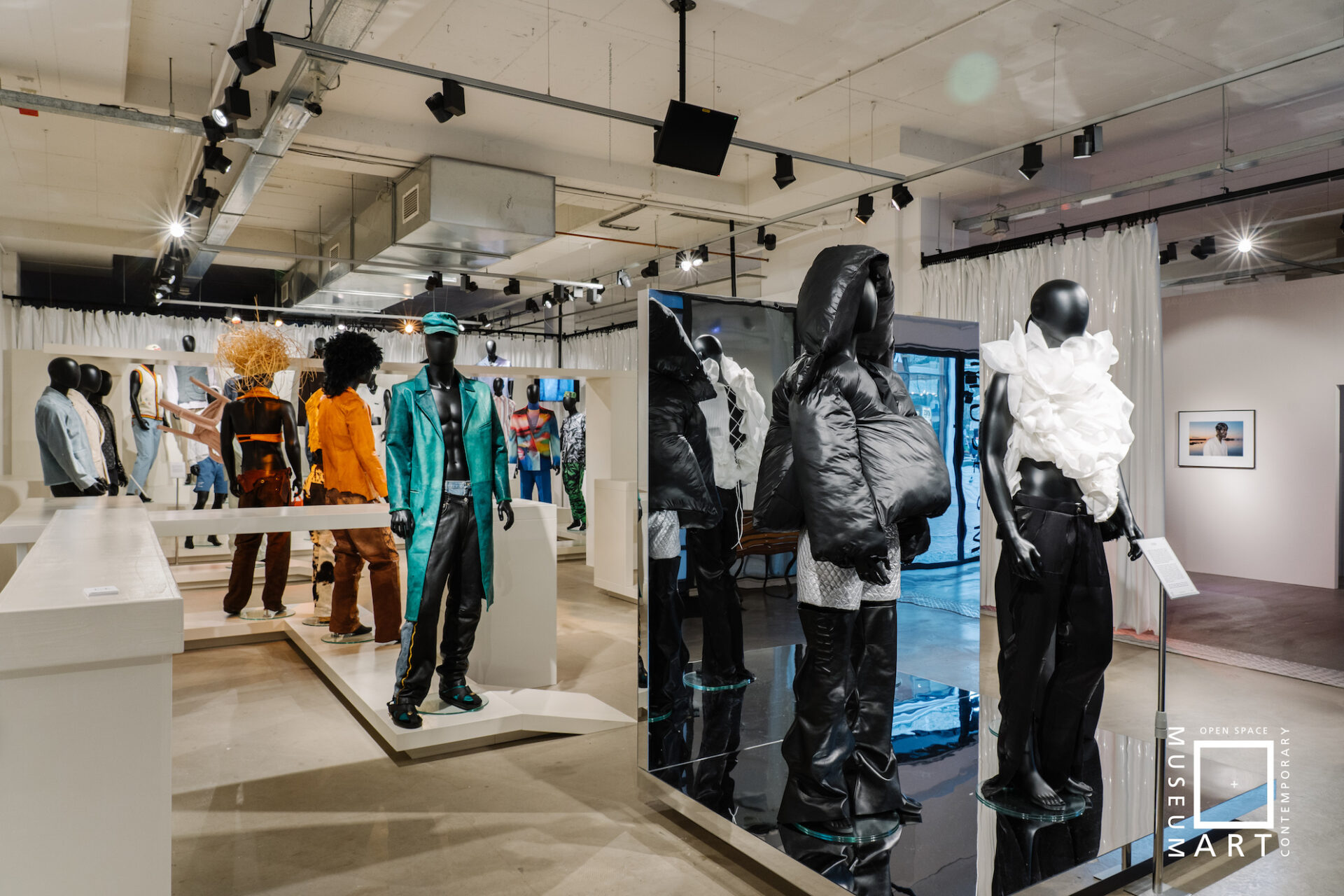
Exhibition overview 'Shifting The Narrative', 2023, at OSCAM, photo: Almicheal Fraay
Duff also keeps a close eye on the working culture at OSCAM. Reflecting on the pace of their work, she states, ‘We did like 57 exhibitions in five years! That’s crazy!’ Many were collaborations with other institutions in Amsterdam, but they are now beginning to turn away from a busy schedule of partnerships. ‘We’ve shown ourselves enough. So now we’re going back to our core business. And what is important for us is calm.’ Duff wants to take risks with the shows at OSCAM, but also balance the grind culture that demands too much. Duff sighs and quotes Lee Stewart, ‘Let’s be honest, we all need rest.’ She lets me know that an upcoming exhibition will revolve around this exact subject, explaining the idea behind the show: ‘We started to think about this exhibition during Covid-19 with Lee. We’re always grinding, always working 24/7, especially people of color, because we have to work twice, triple as hard as others. So we decided to focus on rest, and how to get more in balance with what we’re doing.’
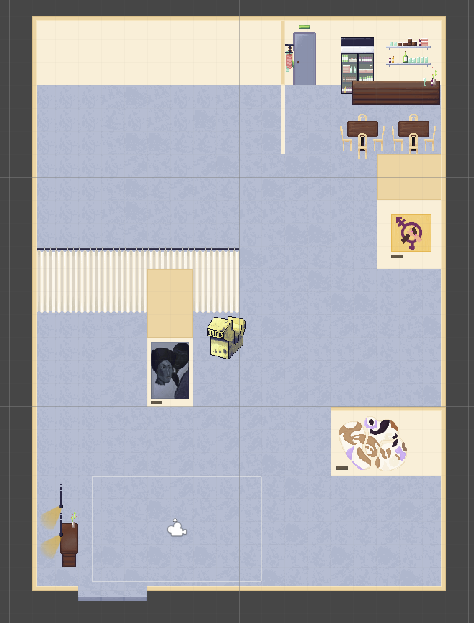
Still from the OSCAM Museum Game, courtesy: OSCAM
Viewers of every background will be able to relate to a show that appeals to our nature for rest and taking things slowly. Every institution could greatly benefit from focusing on the mental wellbeing of its workers. And while Duff is not overly concerned with the going-ons of other museums, it seems she does want to help push the cultural shift for universally inclusive museum spaces. In her independent research as a fellow for HKU, Duff is developing a game where other institutions can engage with topics typically left unspoken. An 8-bit avatar walks around a museum setting and is prompted with questions on how the real-world person’s institution is run. The player receives a score afterwards, which the office can collectively discuss afterwards and identify weak spots. Though this game takes place in the virtual, Duff hopes that its players can ask themselves: ‘How can we curate for the world we’re living in?’ She describes it as a way for ‘museums to check out their game and to develop their museum game better. And with game, I mean their work.’ The message is clear: get with it, or get left behind. And OSCAM has no intention of being bogged down by the petty bourgeoisie ideas of old. As we talk, I see clearly her vision of an institution that is fiercely walking the walk to create more equitable futures in art.
Duff is developing a game where other institutions can engage with topics typically left unspoken. She hopes that its players can ask themselves: ‘How can we curate for the world we’re living in?’
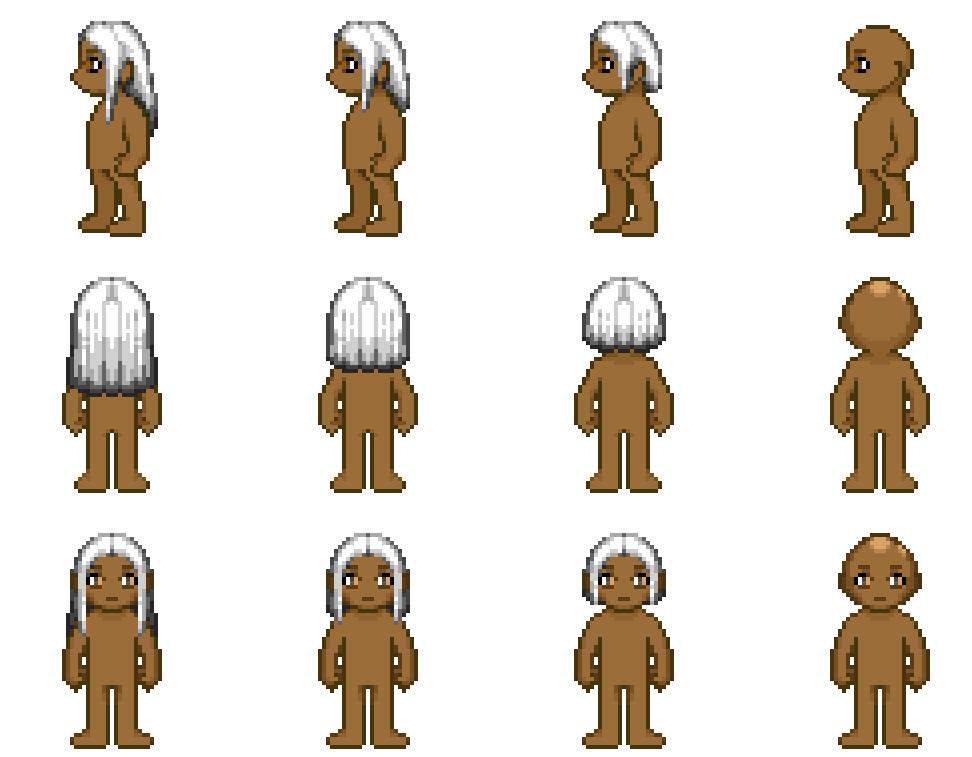
Still from the OSCAM Museum Game, courtesy: OSCAM
When asked about the future of OSCAM, there is a tangible beam of positivity. They plan to move buildings in the next two to three years. There is a distinct gratitude for the space they currently have, but she could leave the rolling garage entrance behind. She envisions an expanded space where the team can continue and plan even bigger exhibitions, lecture series, and holding space for the community. What about the future work? Duff explains that they’ll continue to do what they’ve always done: ‘We want to show work that tells the stories, and shows the layers of the human experience; that simultaneously gives and is imagination, that touches heart and head. That work is never just ours, but always yours too, and preferably ours together, because we give meaning to it together.’ When I ask if they’ll be staying in the Bijlmer neighborhood, she gives an emphatic ‘Yes!’ Not only in the Bijlmer, but also in the bustling Amsterdamse Poort. Duff determinedly states, ‘We’re still there. We’re here to stay, and we’re going nowhere.’ She pauses, thoughtful, and continues: ‘The most important thing for me is that we’re all healthy.’ She pauses again, looks directly into the camera, and joyfully quotes an exhibition, as if for the whole world to hear her, ‘We are here forever! Do you understand?’
Shifting the Narrative is on view at OSCAM through 08 June, 2023
Let’s Be Honest: We All Need Rest is on view at OSCAM from 17 June, 2023
Olivia Brown
is an artist and writer from New Orleans, LA, currently finishing her MA in Artistic Research at the UvA surrounding themes of cli-fi, Black bodies, and contamination
